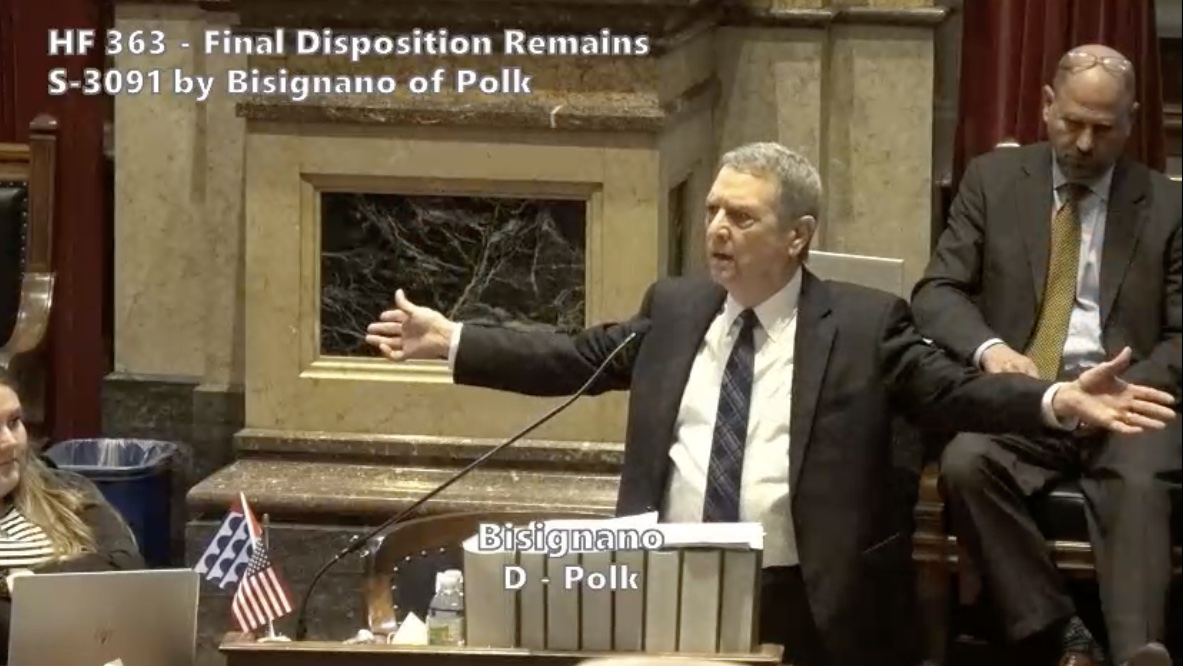Yesterday the Iowa Senate approved by 36 votes to 12 a bill to legalize the use of medical cannabis oil for treating certain seizure conditions. You can read the full text of Senate File 2360 here. After the jump I’ve posted State Senator Joe Bolkcom’s floor statements in support of the bill, which summarize its key points and limited scope. An Iowa Senate Democratic research staffer provided a more detailed analysis of the bill here (pdf).
The roll call in the Senate Journal shows that all 26 Iowa Senate Democrats voted for the cannabis oil bill, joined by the following ten Republicans: Mike Breitbach, Mark Chelgren, Minority Leader Bill Dix, Joni Ernst, Hubert Houser, David Johnson, Tim Kapucian, Charles Schneider, Amy Sinclair, and Brad Zaun. The twelve Republicans who voted no were Bill Anderson, Jerry Behn, Rick Bertrand, Nancy Boettger, Jake Chapman, Randy Feenstra, Julian Garrett, Sandy Greiner, Dennis Guth, Ken Rozenboom, Roby Smith, and Jack Whitver. Republicans Mark Segebart and Dan Zumbach were absent.
During the floor debate, several Republicans warned that passing the bill would send the wrong message to teenagers, leading to more recreational use of marijuana. That’s hard to fathom, since the bill does not legalize smoking marijuana, even for terminally or chronically ill Iowans who could benefit from medical cannabis in that form.
Key Iowa House Republicans and Governor Terry Branstad have made clear that for now, they would consider only a bill to allow access to medical cannabis oil. I hope a study committee on broader use of medical marijuana will go forward. Senate File 2360 is a step in the right direction and will give families like this one options other than moving to Colorado. However, the bill leaves out too many suffering people.
P.S.- A sign of how far the political ground has shifted in the medical marijuana debate: Joni Ernst and Brad Zaun are in fiercely competitive GOP primaries (for U.S. Senate and IA-03, respectively). Both of them voted for this bill.
Continue Reading...


